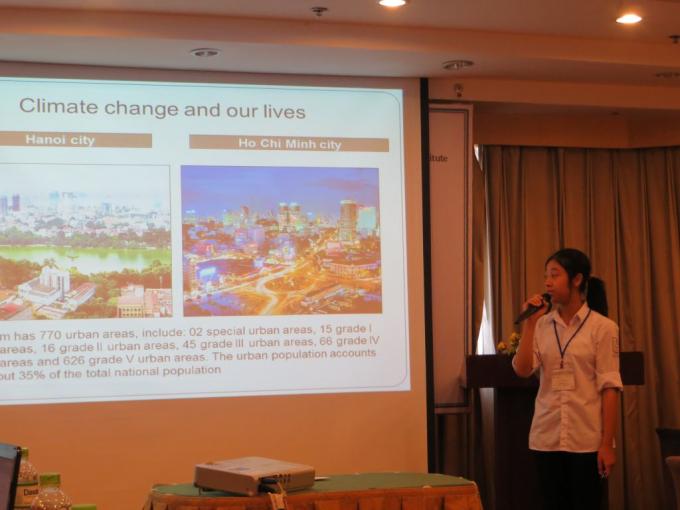Climate Change Resilience by Urban Children in Asia: Save the Children workshop
On 23rd September 2014, Save the Children International in Vietnam had organized a Regional workshop in Hanoi on Climate Change Risks and Resilience in Urban Children in Asia.
The workshop was held within the research project funded by the International Institute for Environment and Development (IIED) (via the Rockefeller Foundation-supported Asian Cities Climate Change Resilience Network). The research adopted an ecological contextualist approach where it integrated the framework for urban climate resilience (from the perspective of planning and intervention measures) with three vulnerability domains: physical, politico-legal and socio-economic, to more fully capture the complex web of risks due to climate change that affects children particularly when living in urban poverty.
The project aimed to outline the key vulnerabilities of urban children to climate change, barriers to effective climate change adaptation which make it difficult for children to enjoy and adults to safeguard their rights and thus provided recommendations the following adaptation measures to safeguard and promote urban children’s rights. This project has been conducted in the central coastal city of Da Nang as well as cities in Bangladesh and the Philippines, said international consultant Sudeshna Chatterjee.
Migrant and homeless children, children living in informal housing and children engaged in labour were more vulnerable to the impacts of climate change in Da Nang.
Nguyen Minh Hung, deputy director of Da Nang's Education and Training Department, said that the department was compiling a set of documents about climate change adaptation that would be integrated with subjects such as Geography and Citizen Education. The documents would provide students from primary to high school level with basic skills for adapting to climate change.
Da Nang and other central coastal localities are hit hardest by climate change and extreme weather. One or two strong storms have battered the city annually in recent years and flash floods and landslides have become more frequent, damaging local schools and infrastructure, Hung said.
Heat waves and environmental pollution also caused health problems for children, especially those who were underprivileged or disabled, he added.
The aim of the workshop is to provide initial results and received feedbacks from donors, government bodies and non-governmental organizations in order to fine-tune the research results
 Vietnam
Vietnam 